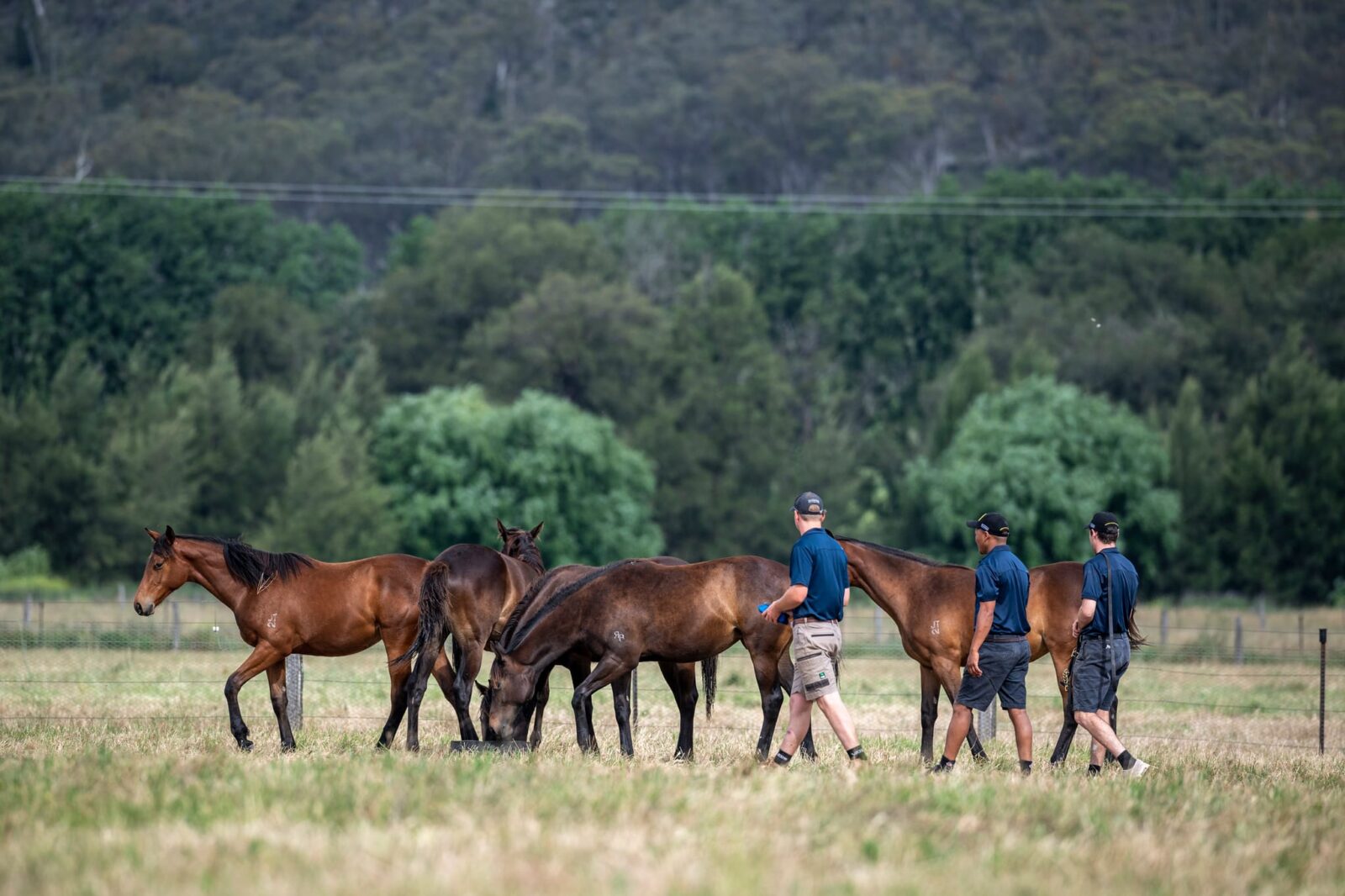Feeding the future: Gary Sansom scholar looks to legumes for poultry nutrition

 THOROUGHBRED HORSES / Tuesday, 4 June 2024
THOROUGHBRED HORSES / Tuesday, 4 June 2024 
Salmonella enterica is the most important contagious enteropathogen of horses of all ages, causing diarrhoea, colic, extra-intestinal disease, systemic illness and death. Yet despite its importance as a major cause of intestinal disease and substantial morbidity and mortality in affected horses, the risk factors for Salmonella infection in horses in Australia are unknown.
A study led by Charles Sturt University’s Prof. Kris Hughes – Epidemiological and bacterial analyses of Salmonella infection in the Australian thoroughbred horse breeding industry – is helping industry better understand Salmonella infection in Australian horses, through investigating factors associated with the likelihood of infection in horses and the characteristics of infecting Salmonella strains.
“Salmonella represents a major risk to the health and welfare of horses and can lead to substantial disruption to the sustainability and functionality of equine premises, studs and equine veterinary hospitals,” Kris said.
“In addition, Salmonella isolates can also have resistance to multiple types of antibiotics — multi-drug-resistant isolates, but little is known about the serotypes involved in equine infection and whether multi-drug-resistant isolates are prevalent in Australian horse populations and facilities.”
Reduced Salmonella infection and recognition of multi-drug resistant strains of Salmonella will provide opportunities to reduce antimicrobial use and encourage improved antimicrobial stewardship, which has important potential economic, environmental and community benefits.
“Reduced antimicrobial use will lessen selection pressure for antimicrobial resistance in horse — and human — bacterial isolates,” Kris said.
The research team is undertaking retrospective and prospective epidemiological investigations to determine the prevalence and risk factors for Salmonella shedding and the impact of Salmonella associated disease in two key industry settings — equine veterinary hospitals and thoroughbred stud farms.
“We have selected these industry settings as equine hospitals are integral in the management and optimisation of horse health and are at the forefront of infection control and biosecurity challenges and responses for the industry,” Kris explained.
“Similarly, thoroughbred stud farms are instrumental to the wellbeing of horse health.” Additionally, Salmonella isolates are being serotyped to investigate candidate routes of transmission of Salmonella in horse populations and facilities. The epidemiological and bacteriological information generated from the research, to understand and address challenges faced by the thoroughbred industry, will be used to develop evidence-based risk mitigation strategies for the benefit of all stakeholders.
“While it is difficult to quantify the overall monetary benefit across the industry, the treatment of Salmonellosis infection in an affected horse can exceed $5,000–10,000.
Even a modest reduction in the prevalence of Salmonella infection would result in considerable economic benefit,” Kris said.
“Safeguarding the health of the thoroughbred breeding industry underpins the success and growth of the entire industry, including racing and export markets, which is why this work is so important.”
Find out more about the AgriFutures Thoroughbred Horses Program CHICKEN MEAT / 04.06.24
CHICKEN MEAT / 04.06.24  THOROUGHBRED HORSES / 04.06.24
THOROUGHBRED HORSES / 04.06.24  THOROUGHBRED HORSES / 04.06.24
THOROUGHBRED HORSES / 04.06.24  WORKFORCE AND LEADERSHIP / 04.06.24
WORKFORCE AND LEADERSHIP / 04.06.24